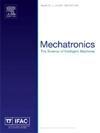基于深度神经网络的力/扭矩补偿器和任务空间误差跟踪控制器的自动化增量成形轨迹控制
IF 3.1
3区 计算机科学
Q2 AUTOMATION & CONTROL SYSTEMS
引用次数: 0
摘要
在机器人增量成形(ISF)中,由于机器人末端执行器上的成形工具存在轨迹刀具中心点(TCP)位置误差,实现精确的几何精度是一项具有挑战性的任务。这些误差主要是由成形工具与弹性金属板相互作用过程中产生的外部扰动力和扭矩引起的。虽然关节-扭矩空间控制器可以通过动态建模来减轻反作用力和扭矩,但关节-空间控制具有固有的局限性,特别是对于像ABB IRB 8700这样的工业高负载机器人。为了克服这些挑战,本工作使用深度神经网络在任务空间中实现了外部力/扭矩(F/T)补偿器。该网络预测由反作用力和通过6轴F/T传感器测量的扭矩引起的轨迹误差。此外,使用激光跟踪器精确监测成形工具的轨迹,该跟踪器作为闭环任务空间误差跟踪控制器中的反馈机制。该控制器实时检测和纠正轨迹偏差。通过集成F/T补偿器和任务空间误差跟踪控制器,该方法有效地补偿了反作用力和扭矩,同时解决了由其他过程相关因素引入的附加误差。这种集成结果显著提高了机器人增量成形过程的精度。本文章由计算机程序翻译,如有差异,请以英文原文为准。
Robotized Incremental Sheet Forming trajectory control using deep neural network for force/torque compensator and task-space error tracking controller
In Robotized Incremental Sheet Forming (ISF), achieving precise geometrical accuracy is a challenging task due to trajectory tool center point (TCP) position errors at the forming tool attached to the robot’s end-effector. These errors primarily arise from external disturbance forces and torques generated during the interaction between the forming tool and the elastic metal sheet. While joint-torque space controllers can mitigate reaction forces and torques through dynamic modeling, joint-space control has inherent limitations, particularly for industrial high-load robots like the ABB IRB 8700. To overcome these challenges, this work implements an external force/torque (F/T) compensator in task-space using a deep neural network. The network predicts trajectory errors induced by reaction forces and torques measured via a 6-axis F/T sensor. Additionally, the forming tool’s trajectory is precisely monitored using a laser tracker, which serves as a feedback mechanism in a closed-loop task-space error-tracking controller. This controller detects and corrects trajectory deviations in real time. By integrating the F/T compensator and the task-space error-tracking controller, the proposed approach effectively compensates for reaction forces and torques while addressing additional errors introduced by other process-related factors. This integration results in significantly enhanced accuracy in robotic incremental forming processes.
求助全文
通过发布文献求助,成功后即可免费获取论文全文。
去求助
来源期刊

Mechatronics
工程技术-工程:电子与电气
CiteScore
5.90
自引率
9.10%
发文量
0
审稿时长
109 days
期刊介绍:
Mechatronics is the synergistic combination of precision mechanical engineering, electronic control and systems thinking in the design of products and manufacturing processes. It relates to the design of systems, devices and products aimed at achieving an optimal balance between basic mechanical structure and its overall control. The purpose of this journal is to provide rapid publication of topical papers featuring practical developments in mechatronics. It will cover a wide range of application areas including consumer product design, instrumentation, manufacturing methods, computer integration and process and device control, and will attract a readership from across the industrial and academic research spectrum. Particular importance will be attached to aspects of innovation in mechatronics design philosophy which illustrate the benefits obtainable by an a priori integration of functionality with embedded microprocessor control. A major item will be the design of machines, devices and systems possessing a degree of computer based intelligence. The journal seeks to publish research progress in this field with an emphasis on the applied rather than the theoretical. It will also serve the dual role of bringing greater recognition to this important area of engineering.
 求助内容:
求助内容: 应助结果提醒方式:
应助结果提醒方式:


